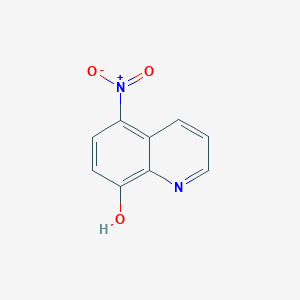-
Categories
-
Pharmaceutical Intermediates
-
Active Pharmaceutical Ingredients
-
Food Additives
- Industrial Coatings
- Agrochemicals
- Dyes and Pigments
- Surfactant
- Flavors and Fragrances
- Chemical Reagents
- Catalyst and Auxiliary
- Natural Products
- Inorganic Chemistry
-
Organic Chemistry
-
Biochemical Engineering
- Analytical Chemistry
- Cosmetic Ingredient
-
Pharmaceutical Intermediates
Promotion
ECHEMI Mall
Wholesale
Weekly Price
Exhibition
News
-
Trade Service
The development of an effective vaccine is an extremely urgent task in order to halt the worldwide pandemic of the new coronavirus.
recovering from the new coronavirus, many researchers have identified neutralizing antibodies made by the body's immune system.
based on this, scientists are designing and developing vaccines.
photo source: A team led by the Scripps Research Institute analyzed nearly 300 human-source neutralizing antibodies and found that antibodies that are particularly powerful in the medium and new coronavirus have key commonalities in molecular characteristics: the same antibody-coding gene, according to a new study published today in the leading academic journal Science.
researchers point out that determining the antibodies encoded by the gene is a key factor in the immune response, meaning that the levels of such antibodies may provide an indirect marker for the ongoing and upcoming clinical trials of the new coronavaccines.
"This is important for designing an efficient COVID-19 vaccine.
study co-author Professor Dennis Burton said.
team first analyzed 294 different neutralizing antibodies.
these antibodies have been isolated from the blood of patients in the new coronary period of rehabilitation over the past few months, and can target the S protein on the surface of the new coronavirus to block the virus's binding to host cells. antibodies in
humans are made from immune cell B cells, each of which encodes a specific class of antibodies based on a unique combination of antibody genes within the cell.
in the study, the scientists found that the IGHV3-53 antibody gene, which encodes the heavy chain variable region (a component of the antibody), is the most commonly used gene among these neutralizing antibodies, about 10 percent;
next, using high-resolution X-ray crystallography, the team analyzed the details of antibodies in the expression fragments of two IGHV3-53 genes, further revealing the structural characteristics of these antibodies effectively binding to the new coronavirus targets. the two IGHV3-53 encoded antibodies (yellow and orange) of the
(yellow and orange) are the crystal structure of the complex of the neo-coronavirus S protein (Picture Source: References 2; Credit: Wilson Lab) also noted that the iGHV3-53 encoded antibody fragments found in the study had only slight variations compared to a small number of original versions of the healthy human blood circulation.
this means that increasing the number of such antibodies with vaccines is an achievable goal.
this is because, in general, B cells encounter the virus and begin to multiply at the same time, part of the antibody gene mutates in order to produce new B cells, producing antibodies more suitable for the target of the virus.
in this "affinity maturation" process, the more mutations needed to produce viruses and antibodies, meaning that it is more difficult to induce the process with a vaccine.
fortunate, "these IGHV3-53-encoded antibodies for the new coronavirus require an efficient neutralizing antibody response to the target without requiring affinity to mature," the study authors concluded.
therefore, the vaccine may be relatively easy to induce a protective response from these powerful neutralizing antibodies.
" coronavirus has been around us for hundreds of years, and it is conceivable that our immune system is evolving and the body carries an immediate and powerful response. Professor Ian Wilson, one of the lead authors of the
study, said.
References . . . . . . . . . . . . . . . . . . . . . . . . . . . . . . . . . . . . . . . . . . . . . . . . . . . . . . . . . . . . . . . . . . . . . . . . . . . . . . . . . . . . . . . . . . . . . . . . . . . . . Science. DOI: 10.1126 / science.abd2321.2. Scientists discover key element of the strong antibody response to COVID-19. Retrieved July 14, 2020, from.







